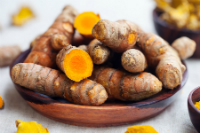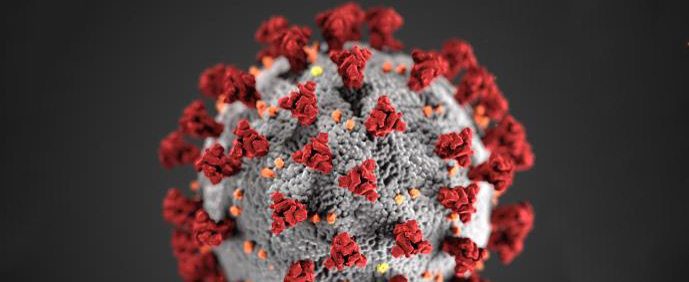Your cardiovascular health – and actually the health of your entire body – depends upon a strong network of blood vessels. From the womb through old age, healthy arteries, capillaries and veins are essential for optimal functioning of all organs, muscles and nerves. They fuel and cleanse your body in two ways: efficient nutrient delivery (fuel) and removal of toxins (cleanse/detox). Their main job is to deliver more blood flow where needed, or constrict to reduce blood flow when necessary.
 If your blood vessels don’t open or narrow as required, then blood, oxygen and nutrients can’t get to where they’re needed, whether it’s the brain, the gut, the muscles, or back to the heart. Poor condition of your blood vessels can lead to major illness of the heart, including atherosclerosis (clogged or blocked arties), as well as varicose veins, aneurysm, and other diseases of veins and arteries in the periphery of the body.
If your blood vessels don’t open or narrow as required, then blood, oxygen and nutrients can’t get to where they’re needed, whether it’s the brain, the gut, the muscles, or back to the heart. Poor condition of your blood vessels can lead to major illness of the heart, including atherosclerosis (clogged or blocked arties), as well as varicose veins, aneurysm, and other diseases of veins and arteries in the periphery of the body.
Tips for Maintaining Cardiovascular Health
Many of the things you do for the health of your heart are also important for the blood vessels. The entire circulatory system benefits from exercising aerobically every day, reducing stress and negativity, getting sufficient hours of restful sleep, eating a variety of whole foods, and not smoking. Specifically, here are ways to maintain healthy blood vessels:
Eat Smart: Eating a variety of colorful fruits and dark green veggies daily provides ample amounts of fiber and Vitamin C, both important to blood vessel resilience. When cooking, use plant based oils such as coconut, olive, and sunflower. Limit your intake of refined sugars. Opt for wild caught fish, organic or free-range poultry, and leaner cuts of grass fed beef. Increase intake of healthy fats such as avocado, nuts and seeds.
Stay Calm: Chronic negativity and daily stress take a huge toll on your mind and body, particularly the cardiovascular system. Learn how to achieve inner calm through healthy coping strategies, deep breathing, yoga, meditation, journaling, and aerobic exercise.
Break a Sweat: The most important type of exercise for your circulatory system is aerobic, where you’re moving your body rhythmically to increase heart rate, breathing rate, and circulation. You also break a good sweat. When you’re in the zone for 30 minutes a day, you’ve done your heart, mind and body a world of good.
Supplement Your Diet: Support blood vessel health with key nutrition supplements, which include turmeric, bioflavonoids, anthocyanidins (colored plant pigments), and trace minerals. Turmeric contains curcumin, which has anti-inflammatory properties and supports the elasticity of the blood vessels. anthocyanidins contribute to the robust color of many fruits and veggies, and have heart-protective properties. Bioflavonoids support cell growth and can help reduce inflammation. Trace minerals such as zinc and copper, support healthy development of the vessels and other tissues in the body.
Start a conversation with Dr. Fenske about steps you can take to support the health of your blood vessels and all of the vital organs they nourish and protect.
Tasty Turmeric
The bright golden-orange spice in curry and mustard comes from turmeric, a tasty herb with numerous health benefits. Turmeric is an excellent source of iron, manganese and vitamin B6. Additionally, curcumin, an active component in turmeric, is known for its antioxidant and anti-inflammatory properties. In traditional Indian and Chinese medicine, turmeric has been used to treat allergies, heartburn, digestive ailments, and arthritis. Today, it’s gaining research attention for prevention and treatment of cancer, diabetes, and heart disease.
 According to a recent study, a daily intake of turmeric helps blood vessels dilate fully. It also helps protect the arteries from inflammation – a primary cause of atherosclerosis (clogged arteries) and a risk factor for heart attack and stroke.
According to a recent study, a daily intake of turmeric helps blood vessels dilate fully. It also helps protect the arteries from inflammation – a primary cause of atherosclerosis (clogged arteries) and a risk factor for heart attack and stroke.
Including turmeric in your diet is easy to do: Sprinkle turmeric into soups, dressings, over meats, roasted veggies, scrambled eggs, or smoothies. To help your body maximize absorption of turmeric’s key compounds, add it to healthy fats (e.g., olive oil) while they are warming.
If heart disease runs in your family, or you have other risk factors, ask Dr. Fenske about taking a curcumin supplement. Ideally, look for one with high bioavailability, meaning it’s easy for your body to process and absorb from the digestive tract.
Zesty Heart Healthy Salad Dressing
Get out of a rut with your salad dressing by making your own and adding turmeric, a wonderful root herb recognized for anti-inflammatory benefits. The lemon and honey provide a tangy flavor while the combination of garlic, mustard and black pepper give this dressing zest. It’s such a magical combination for your taste buds you might find yourself using it for much more than just your leafy greens!
Ingredients:
- 4 cloves garlic
- 1/4 cup + 2 tablespoons organic olive oil
- 3 tablespoons lemon juice
- 2 t. raw honey
- 2 t. turmeric
- 1/2 t. stone ground mustard
- 1/8 t. black pepper
- 1/4 salt
Instructions: Food process all ingredients until smooth and creamy. Store in fridge.
Boost Cardiovascular Health with Bioflavonoids
Bioflavonoids are naturally occurring plant compounds used in natural medicine to help enhance the action of vitamin C, support blood circulation, and treat allergies, viruses, arthritis and other inflammatory conditions. They act as pigments (coloring) in plants and as antioxidants in humans.
 Bioflavonoids are present in many plant foods and extracts, such as citrus fruits, rose hips, and medicinal herbs. While bioflavonoids have a variety of actions, the most notable is as an antioxidant, gobbling up inflammation-causing free radicals that circulate throughout the body. When combined with vitamin C, bioflavonoids support healthy blood vessel function, as well as protect vitamin C from chemical breakdown, thereby boosting the body’s immune system.
Bioflavonoids are present in many plant foods and extracts, such as citrus fruits, rose hips, and medicinal herbs. While bioflavonoids have a variety of actions, the most notable is as an antioxidant, gobbling up inflammation-causing free radicals that circulate throughout the body. When combined with vitamin C, bioflavonoids support healthy blood vessel function, as well as protect vitamin C from chemical breakdown, thereby boosting the body’s immune system.
The anti-inflammatory benefit of bioflavonoids is particularly important in preventing heart disease. Atherosclerosis is one condition that bioflavonoids can protect against. Research on bioflavonoids is expanding and results have been promising. For example, studies show that regularly consuming high quality sources of bioflavonoids – at least two servings of citrus fruit daily – can improve markers of healthy blood vessel function.
If you have allergies or food sensitivity to citrus fruits, or are taking other medications, talk with Dr. Fenske before taking a bioflavonoid supplement.
[hr]
Guiding Principles




